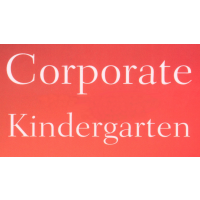Kindergartners to Learn about Copyright Law from Hollywood Pros

Hollywood studios and other content providers have been in a fight for years over anti-piracy laws, making their case in courts of law and public opinion.
Now, they are taking their appeal for an understanding of the law—which they say should recognize their proprietary claims to sole use of copyrighted material they produce—to a captive audience they hope will be influential in the years to come: elementary school children.
The publication Wired says a nearly-completed draft of a curriculum being developed for California K-6 schools presents a one-sided view of intellectual property which, in the words of Electronic Frontier Foundation attorney Mitch Stoltz, is “thinly disguised corporate propaganda” that is “inaccurate and inappropriate.”
The curriculum, called “Be a Creator,” uses a video and teacher talking points to argue that, without exception, it is wrong and illegal to use the works of others without permission in creating your own works. Doing so is likened to cribbing answers to test questions from a fellow student. Wired quotes a teacher worksheet that asserts, “In the digital world, it’s harder to see the effects of copying, even though the effects can be more serious.”
In other words, copyright infringement is always illegal. No exceptions. Except, in the real world, there are some.
The instructional material makes no mention of the legal doctrine of fair use, which allows for the reproduction of copyrighted material for use in criticism, comment, news reporting, teaching, scholarship and research. It is an evolving area of law, influenced heavily by emerging technologies, which plays a prominent role in ongoing court cases.
But the authors of the developing curriculum argue that its inclusion would only confuse the kids. Marsali Hancock, president of the Internet Keep Safe Coalition (iKeepSafe), which helped craft the curriculum, said “fair use” will be included in materials developed at a later date for older students.
Although “fair use” is beyond them, kids are ready in the 5th grade for an introduction to the Creative Commons license, which in so many words makes clear that copying stuff to your iPad, iPod, desktop or other device is not legal.
The coalition is a non-profit organization that partners with governments, Microsoft, Google, Facebook, Target and other big corporations. It is producing the curriculum with the California School Library Association for the Center for Copyright Information, which commissioned it. The center is a partnership of the Motion Picture Association of America (MPAA), the Recording Industry Association of American (RIAA) and five big Internet providers.
The groups working on the curriculum take a narrow view of the creative process which fails to recognize that much of what passes for original thought and creation is actually a synthesis of creative works that preceded it. Although copyright law is as complicated as the creative process it attempts to compartmentalize and control, “Be a Creator” simplifies the subject in a way its authors hope will stay with the kids forever.
“We show respect for other artists and their work when we get permission before we use their work,” first-graders are told (pdf). “But taking something without asking is mean.”
And nobody likes a meanie.
–Ken Broder
To Learn More:
Downloading Is Mean! Content Industry Drafts Anti-Piracy Curriculum for Elementary Schools (by David Kravets, Wired)
MPAA and RIAA Teach Copyright at Kindergartens (TorrentFreak)
Hollywood Studios Lose World’s First Major Ruling on Downloading of Copyrighted Material (by David Wallechinsky and Noel Brinkerhoff, AllGov)
- Top Stories
- Controversies
- Where is the Money Going?
- California and the Nation
- Appointments and Resignations
- Unusual News
- Latest News
- California Forbids U.S. Immigration Agents from Pretending to be Police
- California Lawmakers Urged to Strip “Self-Dealing” Tax Board of Its Duties
- Big Oil’s Grip on California
- Santa Cruz Police See Homeland Security Betrayal in Use of Gang Roundup as Cover for Immigration Raid
- Oil Companies Face Deadline to Stop Polluting California Groundwater





